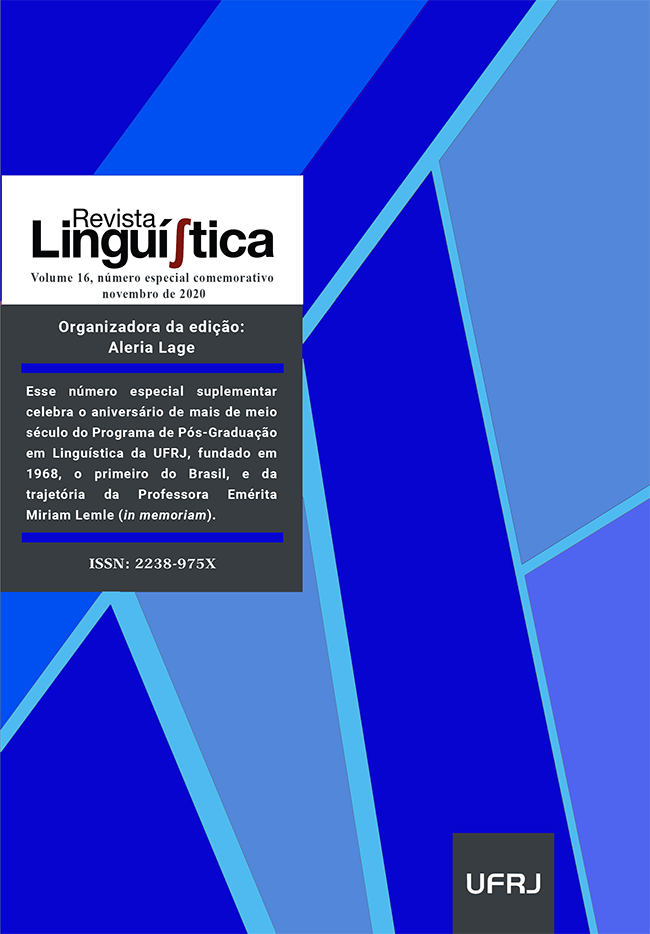The remote in language teaching in the covid-19 pandemic - In vitro experimentation, in vivo experimentation
DOI:
https://doi.org/10.31513/linguistica.2020.v16nEsp.a43736Keywords:
Remote Education, Faculty of Language, Communicative Competence, in vitro experimentation, in vivo experimentation.Abstract
In this study, myths and truths of distance learning are demonstrated, proving its complexity for implementation of remote education implemented in the course of the COVID 19 pandemic. The investigation debates and considers relevant the precision of the scientific methods of Science of Language until reaching the right 'remedy' for the construction of knowledge, such as the experiments from health scientists to arrive at the drug and vaccine that attenuate or even cure pathogenic conditions. In the investigation, it is argued that the communicative competence, indispensable to the interaction between men, is compromised in the remote precisely because of the limitations of the technologies, although their positive functions are propagated. The research data uses messages exchanged between teachers and students in various grades of elementary and high school, whose classes are heterogeneous from the point of view of social origin, accumulated knowledge, and dynamic uses of language. The analysis of the samples collected at random is of a qualitative and quantitative nature and exposes: (1) the enormous gap of syntactic constructions in the dialogue between teacher and student; (2) the impossibility of identifying the identity features and the uniqueness of the students; (3) the exclusive nature of the remote in the proposal for an inclusive school with subjects with different syndromes; (4) the remote as a mere repository of activities that are almost always undeveloped. The article attests to more truths than myths in the remote, which were already present in the country's education. Intervention guided by basic research is the successful remedy, if successful in vivo experimentation, for the good performance of ‘educated groups’.
Downloads
Published
Issue
Section
License
Authors who publish in the Revista Linguí∫tica agree with the following terms:
The authors maintain their rights, ceding to the journal the right to first publication of the article, simultaneously submitted to a Creative Commons license permitting the sharing with third-parties of published content as long as it mentions the author and its first publication in the Revista Linguí∫tica.
Authors may enter into additional agreements for the non-exclusive distribution of their published work (for example, posting in online institutional or non-profit repositories, or book chapters) so long as they acknowledge its initial publication in the Revista Linguí∫tica.

The journal Revista Linguí∫tica is published by the Post-Graduate program in Linguistics of UFRJ and employs a Creative Commons - Attribution-NonCommercial 4.0 International (CC-BY-NC).









